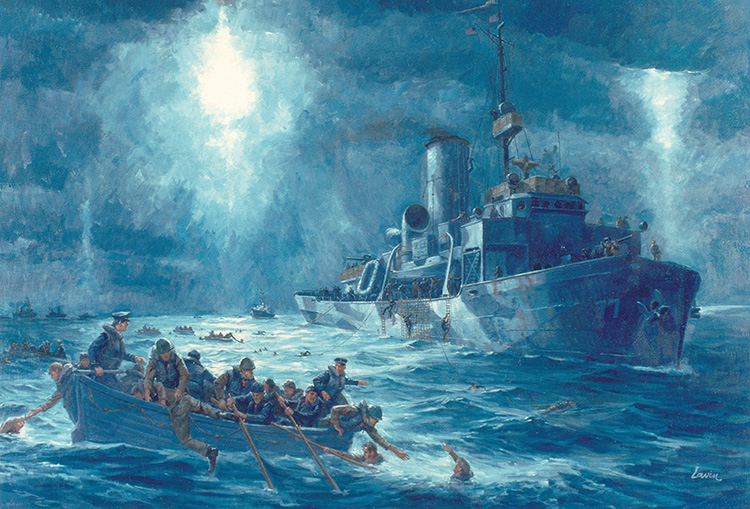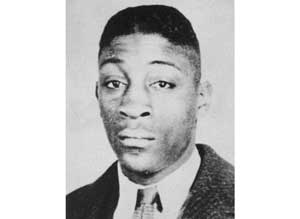
Guest blog post by 2024-2025 American Legion Auxiliary National President Trish Ward
 The American Legion Auxiliary was blessed to have a very special lady serve as our national chaplain in the 1970-1971 ALA administrative year. Isadore Fox, the wife of Chaplain George Fox, served under National President Rae Shaw and brought her sense of faith, fellowship, and dedication to the spiritual office. An ordained minister, Fox met her husband George while at Moody Bible Institute in Chicago where they were both studying for certification to lead others to God. In the February 1971 issue of our national Auxiliary magazine, Fox wrote, “Greater love hath no man than this, that a man lay down his life for his friends.” John 15:13
The American Legion Auxiliary was blessed to have a very special lady serve as our national chaplain in the 1970-1971 ALA administrative year. Isadore Fox, the wife of Chaplain George Fox, served under National President Rae Shaw and brought her sense of faith, fellowship, and dedication to the spiritual office. An ordained minister, Fox met her husband George while at Moody Bible Institute in Chicago where they were both studying for certification to lead others to God. In the February 1971 issue of our national Auxiliary magazine, Fox wrote, “Greater love hath no man than this, that a man lay down his life for his friends.” John 15:13
Continuing, she shared, “February 3, 1943, has become a date which reminds men everywhere that the above words from the Holy Bible are a living symbol for sacrifice. For on that date, four men of God, chaplains in the Army of the United States, gave away their life belts to soldiers on the sinking of the U.S.S. Dorchester and went down with the ship. Need I repeat the story of this tragic event? It is well-known by the members of The American Legion and American Legion Auxiliary. It has become the symbol of brotherhood throughout our great land. It is a call to love in a sacrificial way for the benefit of mankind to the end that they may have a better world in which to live. Not by dying but by living so unselfishly that others may live more abundantly.”
 As our chaplain, Fox used her own story of sacrifice to inspire others to live in peace and harmony and to use their skills to serve their fellow citizens. As Lisa Hirbour, Fox’s granddaughter, shared with me, Fox served others until the day she died. She healed friends and neighbors through spiritual renewal, she sat with the sick, and she lived a life for God and country every moment of every day.
As our chaplain, Fox used her own story of sacrifice to inspire others to live in peace and harmony and to use their skills to serve their fellow citizens. As Lisa Hirbour, Fox’s granddaughter, shared with me, Fox served others until the day she died. She healed friends and neighbors through spiritual renewal, she sat with the sick, and she lived a life for God and country every moment of every day.
We are often reminded of the story of the Dorchester’s loss during the first week of February when American Legion Family members across the nation pause their activities to remember. But what we often forget is that four families were left without direction — their father, brother, son, friend — to find their way in a world at war. Young children lost fathers. Wives lost husbands. People lost friends. Fox shared a premonition with her sister: “Somehow, I can’t see George growing old.” Sadly, she was right.
Evolving from her grief, Fox raised a daughter, Mary, who was just 15 at the time of her father’s loss, and enjoyed a long life overseeing the joy of grown children and grandchildren. Her son, Wyatt, served as a Marine in World War II, traveled extensively, and survived the conflict. The Rev. Isadore Fox passed away in 1982. She rests quietly in Jeffersonville Cemetery, Vt., where her grave proudly displays an American Legion Auxiliary marker placed with love by the American Legion Auxiliary Department of Vermont.
 Rabbi Alexander Goode met the love of his life, Theresa Flax, while in high school. After they married, they relocated to Washington, D.C., where Goode would study the rabbinate. Theresa had a well-paying job in the White House as a secretary to two of President Roosevelt’s brain trusters. She was a hard-working young woman and the favorite niece of entertainer Al Jolson. Daughter Rosalie was just 3 years old when her father was lost. Theresa remarried and lived a life of service in support of her second husband, who was also a Rabbi. Sadly, Rosalie was killed Feb. 10, 1999, in an auto accident in New York. Gratefully, Rosalie’s daughter, Sarah, survived Sept. 11, 2001, when her travel plans changed, taking her off United Flight 93 for a different flight. Son Alexander (Alexander David Goode Fried) is affectionately named after his grandfather. Rosalie’s husband, Paul Fried, is an active and engaged member of the Chapel of the Four Chaplains, ensuring the memory of his father-in-law, Alexander Goode, is never forgotten.
Rabbi Alexander Goode met the love of his life, Theresa Flax, while in high school. After they married, they relocated to Washington, D.C., where Goode would study the rabbinate. Theresa had a well-paying job in the White House as a secretary to two of President Roosevelt’s brain trusters. She was a hard-working young woman and the favorite niece of entertainer Al Jolson. Daughter Rosalie was just 3 years old when her father was lost. Theresa remarried and lived a life of service in support of her second husband, who was also a Rabbi. Sadly, Rosalie was killed Feb. 10, 1999, in an auto accident in New York. Gratefully, Rosalie’s daughter, Sarah, survived Sept. 11, 2001, when her travel plans changed, taking her off United Flight 93 for a different flight. Son Alexander (Alexander David Goode Fried) is affectionately named after his grandfather. Rosalie’s husband, Paul Fried, is an active and engaged member of the Chapel of the Four Chaplains, ensuring the memory of his father-in-law, Alexander Goode, is never forgotten.
 Clark Poling was studying at Yale when he met a minister’s daughter, Betty Jung, and they were married shortly after. It is interesting to note that Poling was the nephew of the American Legion Auxiliary’s 28thNational President Laura Goode. Throughout her life, Betty continued to serve others and was known to feed almost any poor person she encountered. Their son, Clark Vandersall Poling Jr., affectionately called “Corky,” joined the family. Their daughter, Susan Elizabeth, was born one month after her father’s death. Clark Jr. was gifted with artistic and creative skills and served as a professor in art history at Emory University. Passing away at the age of 80 in 2021, Corky left behind his wife and two beloved daughters, Nora and Maia. Daughter Susan resides in Kitty Hawk, N.C., and prior to retirement, served her community as a teacher for the hearing impaired. Although her father never met her, Susan was given the name “Thumper” by her dad.
Clark Poling was studying at Yale when he met a minister’s daughter, Betty Jung, and they were married shortly after. It is interesting to note that Poling was the nephew of the American Legion Auxiliary’s 28thNational President Laura Goode. Throughout her life, Betty continued to serve others and was known to feed almost any poor person she encountered. Their son, Clark Vandersall Poling Jr., affectionately called “Corky,” joined the family. Their daughter, Susan Elizabeth, was born one month after her father’s death. Clark Jr. was gifted with artistic and creative skills and served as a professor in art history at Emory University. Passing away at the age of 80 in 2021, Corky left behind his wife and two beloved daughters, Nora and Maia. Daughter Susan resides in Kitty Hawk, N.C., and prior to retirement, served her community as a teacher for the hearing impaired. Although her father never met her, Susan was given the name “Thumper” by her dad.
 The oldest of seven children, John Washington grew up in a working-class neighborhood in the Irish section of Newark, N.J. Washington prepared for the seminary by attending Seton Hall where he then later enrolled at Darlington Seminary. On June 15, 1935, he was ordained, and later in 1938, was assigned to St. Stephen’s Church in Arlington, now known as Kearny, N.J. As Catholic priests do not marry, Washington left behind his mother and five of his six siblings. A sister, Mary, passed at just 15 while Washington was still in high school. In memory of Father Washington, St. Stephen’s Church remembers the tremendous bravery and love he and the Four Chaplains demonstrated at their annual Father Washington Mass held annually in February.
The oldest of seven children, John Washington grew up in a working-class neighborhood in the Irish section of Newark, N.J. Washington prepared for the seminary by attending Seton Hall where he then later enrolled at Darlington Seminary. On June 15, 1935, he was ordained, and later in 1938, was assigned to St. Stephen’s Church in Arlington, now known as Kearny, N.J. As Catholic priests do not marry, Washington left behind his mother and five of his six siblings. A sister, Mary, passed at just 15 while Washington was still in high school. In memory of Father Washington, St. Stephen’s Church remembers the tremendous bravery and love he and the Four Chaplains demonstrated at their annual Father Washington Mass held annually in February.
Left behind were families, wives, mothers, and children who were facing unbelievable tragedy and immeasurable grief. Children who would never know a father or were too young to remember. Children who were old enough to remember and now faced a future without the strength and guidance of a parent.
In his book, 10 Habits of a Peacemaker, author Stephen Collis comments on the night of Feb. 3, 1943, when the Dorchester was impacted: “Despite all the chaos swirling around them, the [Four Chaplains] remained calm. Their inner peace allowed productive outward action. And even before that terrible night, each of the chaplains had reflected an interior confidence and calm that allowed them to interact peacefully with each other and the men they served, despite very real religious differences among all of them.” Regardless of the families they all left behind, Fox, Goode, Poling, and Washington remained fearless and prioritized service of mankind over service to self.

Photo: World War II Museum
In the spirit of Service, Not Self, the mission of the American Legion Auxiliary is to support The American Legion and to honor the sacrifice of those who serve by enhancing the lives of our veterans, military, and their families, both at home and abroad. For God and Country, we advocate for veterans, educate our citizens, mentor youth, and promote patriotism, good citizenship, peace and security.